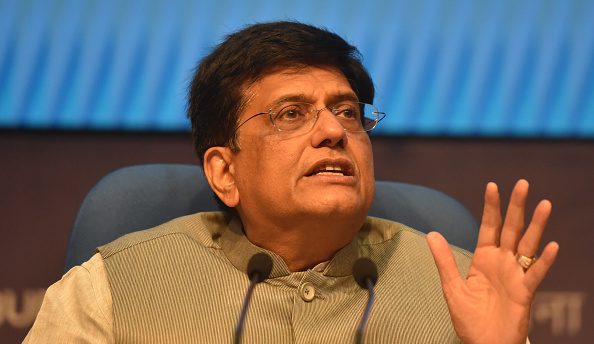Union Commerce and Industry Minister Piyush Goyal is on a two-day visit to Saudi Arabia from October 29 to 30. This visit underscores the significant advancements in Indo-Saudi relations, a partnership that is not only rich in history but also holds immense potential for the future.
Minister Goyal will be participating in the 8th edition of the Future Investment Initiative in Riyadh, a gathering that brings together leaders, investors, and thinkers from around the world.
India and Saudi Arabia share a history of deep economic, cultural, and strategic ties, which in recent decades have been reinforced by high-level exchanges and bilateral agreements. Both countries are committed to a relationship that leverages their respective strengths. Initiatives like the Delhi Declaration in 2006 and the Riyadh Declaration in 2010 laid the groundwork for cooperation, especially in energy. In the years since, visits by Indian Prime Minister Narendra Modi and the Saudi Crown Prince Mohammad bin Salman have solidified these bonds, leading to the formation of the Strategic Partnership Council in 2019.
This Strategic Partnership Council is instrumental in overseeing joint initiatives. Structured with two primary pillars—Political-Security-Socio-Cultural and Economic and Investment—the council addresses the full spectrum of cooperation, from trade and investment to cultural and political exchanges. The council’s economic wing, co-chaired by the Indian Commerce Minister and Saudi Arabia’s Energy Minister, manages four joint working groups that focus on vital areas like industry, infrastructure, and agriculture.
In terms of trade dynamics, Saudi Arabia emerged as India’s fifth-largest trade partner in the financial year 2023-24. Bilateral trade reached nearly USD 43 billion, with India importing primarily crude oil and petrochemicals, while exporting engineering goods, textiles, and food products. Saudi Arabia’s importance as an energy provider is critical, as it supplies 14% of India’s crude oil imports. But beyond oil, both nations are now exploring renewable energy, with shared interests in wind, solar, and hydrogen technology as part of their goals for a sustainable energy future.
In terms of investment, Indian companies have established a notable presence in Saudi Arabia. Firms like L&T, TATA, and TCS are involved in projects across construction, IT, and finance, representing nearly USD 3 billion in Indian investments within the kingdom. On the other hand, Saudi Arabia is increasingly interested in the Indian market, with its Public Investment Fund (PIF) contributing to prominent Indian enterprises like Reliance Jio and investing in various startup sectors. This mutual investment exemplifies the trust and economic synergy these two countries share.
Saudi Arabia’s Vision 2030 reform program aligns closely with India’s developmental ambitions, offering many areas of collaborative opportunity. One such area is food security. Saudi Agricultural & Livestock Investment Company (SALIC) has already invested in India’s rice industry, securing a reliable supply chain for essential food products. Saudi Arabia views India as a key source for commodities like rice, red meat, and seafood, strengthening their interdependent agricultural trade.
The partnership also extends into fields such as pharmaceuticals, ICT, and defense. India’s robust pharmaceutical industry has proven valuable to Saudi Arabia, particularly during the pandemic, and the two countries are now exploring new biotechnology collaborations. In technology, India’s expertise in areas like AI and cybersecurity complements Saudi Arabia’s aspirations to build a knowledge-based economy under Vision 2030.
Minister Goyal’s visit is also an opportunity to highlight the ongoing success of the India-Saudi Investment Forum, an event that saw over 50 agreements signed across various industries. Saudi Arabia’s announcement of establishing an investment office in India signals its commitment to a long-term presence, fostering direct collaboration between businesses in both countries.
As both nations continue to adapt to global economic shifts, the foundation of their partnership has proven resilient, expanding beyond traditional industries. With a clear commitment to exploring new sectors—such as renewable energy, food security, and defense manufacturing—India and Saudi Arabia are building a diversified portfolio of collaborative ventures. Minister Goyal’s visit represents a continuation of this shared vision for prosperity, not only for the two nations but also for the broader global economy.
Looking ahead, India and Saudi Arabia’s economic and commercial partnership holds the promise of growth, innovation, and mutual respect. This evolving relationship embodies the spirit of cooperation in an interconnected world.
By Vinod Kumar (Dubai)










